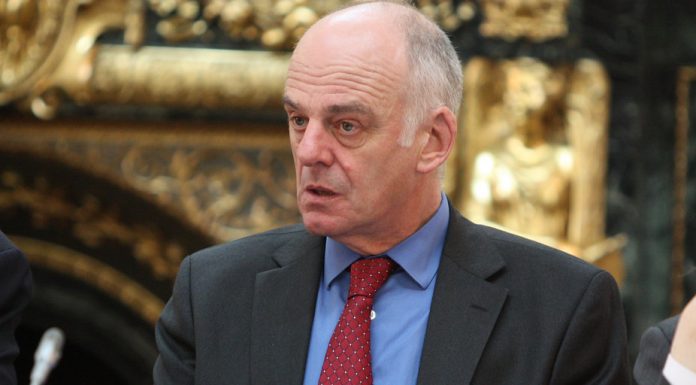A top official at the World Health Organization urged world leaders to stop “using lockdowns” as the “primary control method” when fighting the coronavirus pandemic.
Studies have shown that the lockdowns many countries adopted to stop the spread of COVID-19 have resulted in hundreds of thousands of job losses, plunging nearly 100 million people around the world into “extreme poverty,” according to the Wall Street Journal.
World leaders should keep this in mind as they continue to battle the coronavirus, said Dr. David Nabarro, the WHO’s special envoy on COVID-19.
“We in the World Health Organization do not advocate lockdowns as the primary means of control of this virus,” Nabarro told the Spectator. “The only time we believe a lockdown is justified is to buy you time to reorganize, regroup, rebalance your resources, protect your health workers who are exhausted. But by and large, we’d rather not do it.”
WATCH: Dr David Nabarro, the WHO’s Special Envoy on Covid-19, tells Andrew Neil: ‘We really do appeal to all world leaders: stop using lockdown as your primary control method’. Watch the full interview here: https://t.co/XLdaedsKVS #SpectatorTV @afneil | @davidnabarro pic.twitter.com/1M4xf3VnXQ
— The Spectator (@spectator) October 9, 2020
The economic effects of the shutdown will have long-term consequences that will take years to rectify, Nabarro argued.
“Just look at what’s happened to the tourism industry in the Caribbean, for example, or in the Pacific because people aren’t taking their holidays,” he explained. “Look what’s happened to smallholder farmers all over the world because their markets have got dented. Look what’s happening to poverty levels.
“It seems that we may well have a doubling of world poverty by next year. We may well have at least a doubling of child malnutrition.”
“This is a terrible, ghastly, global catastrophe, actually,” Nabarro continued. “And so we really do appeal to all world leaders: Stop using lockdown as your primary control method.”
Nabarro’s comments come as several European countries consider shutting their economies down to flatten the curve of what appears to be a second wave of COVID-19.
But instead of shutting down, world leaders need to “develop better systems” to contain the spread, said Nabarro.
“Remember, lockdowns have just one consequence that you must never ever belittle, and that is making poor people an awful lot poorer,” Nabarro said.

